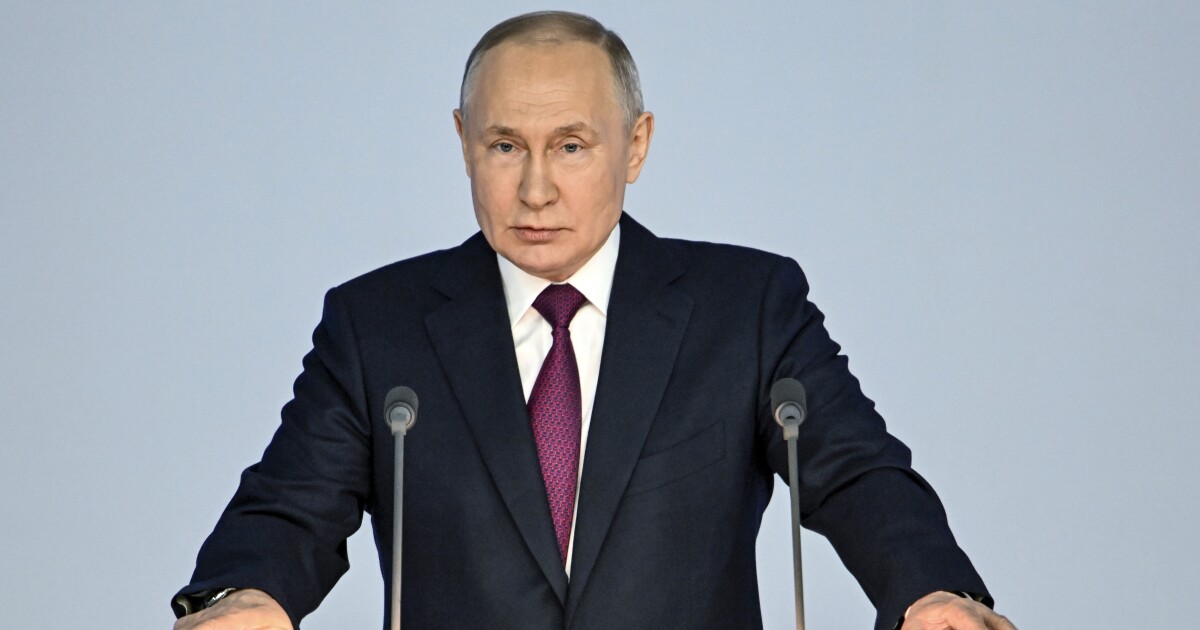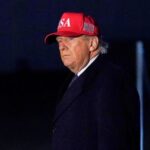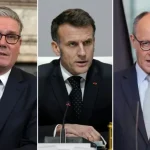

Russian President Vladimir Putin is in a precarious position as his war in Ukraine concludes its first year.
The Russian military’s war in Ukraine has gone far from Putin’s expectations. The portion of the war was defined by his troops’ inability to break through Ukraine’s resistance outside the capital of Kyiv, which exposed several weaknesses and shortcomings and has culminated in a near stalemate in the eastern part of the country, though both sides are expected to mount offensives over the coming months.
Amid repeated military failures, Putin has frequently shuffled top defense leaders, while current leaders, Chief of the General Staff Valery Gerasimov and Minister of Defense Sergei Shoigu, are currently at odds with the leader of a Russian mercenary group that has sent tens of thousands of troops into Ukraine on the front lines of the battles in the east.
US HAS ‘GROWING CONCERN’ OVER CHINA’S RELATIONSHIP WITH RUSSIA
Earlier this week, Yevgeny Prigozhin, the Wagner Group’s founder, accused the top members of the Russian Defense Ministry of “treason” for allegedly providing his men with fewer resources than their own troops. He took the public battle a step further a day later, posting a picture on Telegram showing the bodies of several dozen dead Wagner fighters piled unceremoniously in a courtyard.
“This is one of the gathering places of the dead,” Prigozhin said. “These are the guys who died yesterday due to the so-called ‘shell starvation’ [by the Russian MOD]. There should have been five times fewer of them. So mothers, wives and children will get their bodies.”
Prigozhin’s Telegram posts this week appear to demonstrate an increasingly tense situation within Putin’s inner defense circle, which a State Department official described as “unprecedented.”
“The infighting is unprecedented within Putin’s rule, in terms of the way it’s spilled out into the public, with Prigozhin calling names and basically trying to get the Russian people’s loyalty for his faction and to undercut the Russian military while they are in a war [is] absolutely unprecedented,” Undersecretary of State for Political Affairs Victoria Nuland said on Thursday.
Putin’s been able to “maintain and strengthen his power by having complete control over the various factions of power in the Russian state, and, frankly, over 20 years, playing them off of each other, but that’s usually been done behind closed doors,” Nuland continued, arguing that “to have it spill out in public now certainly indicates that his usual methods of divide and conquer of creating suspicion between groups such that they compete, and he’s the only one who can be the arbiter, has begun to fray.”
The war is currently concentrated in the eastern part of Ukraine, as it has been for months, which is far from Putin’s initial objectives of quickly toppling the Kyiv government.
“On one level, there’s already been a victory in the sense that Putin’s first objective, his primary objective, was to erase Ukraine from the map, to end its identity as an independent country, to absorb it into Russia. That has not happened,” Secretary of State Antony Blinken said in an interview with the Atlantic. “That clearly will not happen. So in that sense, in terms of Putin’s fundamental objective, he’s already failed.”
Putin “must be under immense pressure,” Luke Coffey, a senior fellow at the Hudson Institute, told the Washington Examiner in an interview, saying the Russian leader “doubled down on this commitment against Ukraine.”
“This hasn’t been a success, that the war aims that Putin set for himself were delusional,” Dalibor Rohac of the American Enterprise Institute told the Washington Examiner. “It’s probably coming clearer and clearer to the various sorts of figures in the Russian elite that there is a real mismatch between the hyperambitious goals and the means at Russia’s disposal.”
Despite the lack of results from the war, Putin still believes his troops can outlast the West’s unity and support for Ukraine.
President Joe Biden, earlier this week and ahead of Friday’s anniversary of the start of the war, visited Kyiv, where he met with Ukrainian President Volodymyr Zelensky. Biden reaffirmed his commitment to aiding Ukraine both in his meeting with Zelensky and in subsequent meetings with European allies in Warsaw, Poland.
CLICK HERE TO READ MORE FROM THE WASHINGTON EXAMINER
The president announced a new $460 million military aid package, which brings the total amount of military aid delivered over the last year to just shy of $30 billion, though many of the key weapons included in recent packages are weeks or months from the battlefield. Biden has been hesitant to provide certain advanced weapons systems to Ukraine, citing concerns for possible Russian escalation, even though he has, on multiple occasions, reserved previous decisions on weapons he initially declined to give Kyiv.
Ukraine continues to request F-16 fighter jets and long-range missile systems, two items Biden has refused to provide thus far, though Nuland said officials are “continuing to have those conversations.”
There are lawmakers on Capitol Hill urging Biden to provide Ukraine with these weapons, with Coffey adding, “We have to start wanting Ukraine to win more than we just hope Russia is going to lose. And we need to be arming and equipping Ukraine for victory right now. We are arming and equipping Ukraine so they survive.”







